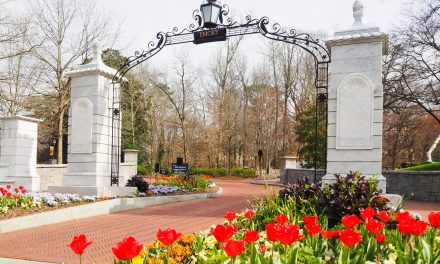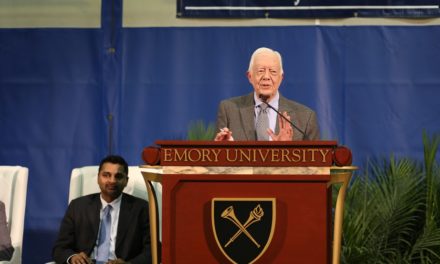The third legislature of the Graduate Student Government Association (GSGA) convened on Monday night to hear a funding request from the Universities Allied for Essential Medicines (UAEM) and to voice questions and concerns to a member of Emory Campus Life.
The legislature unanimously approved UAEM’s funding request of $600.
UAEM seeks to increase research and drug discovery for neglected diseases and promotes awareness of access to medicine. UAEM representatives requested $600 for the Fall 2018 semester to host events, educate the student body on issues pertaining to ethical access of drugs and medical care and begin promoting awareness for neglected diseases.
Carmen Cunningham (19T), a representative from the Candler School of Theology, felt that the club’s project was “interdisciplinary enough for graduate students to be instantly connected to.”
“It’s a good, collaborative effort and it’s led by people who have the heart and the passion, so I think it will be a great success,” Cunningham said.
Senior Director for Learning and Innovation in Campus Life Dona Yarbrough led a session to hear feedback from GSGA about graduate students’ experience at Emory.
Issues raised by GSGA included a more convenient transportation schedule for public shuttles, better housing opportunities and easier accessibility and faculty support on legal and career advising.
A popular concern was that there is no common area for members of different Emory graduate schools to interact. As a result, many students feel they spend the majority of their time strictly with other members of their graduate school.
Cunningham touched upon the problem of seclusion when discussing one of the appeals of UEAM being a truly interdisciplinary program: “I know for me what sold it was thinking about Christian ethics in particular because that is my constituency and how we wouldn’t have access to the medical space in any other way as far as the work that Emory is doing is concerned.”
Multiple GSGA representatives also said they wanted housing opportunities closer to campus for easier commutes to campus.
Yarbrough described the listening session as a success.
“One gentleman apologised for being so critical, but that’s what we want,” Yarbrough said. “We want what’s wrong, so that we can start thinking about what are some of the possible solutions.”




